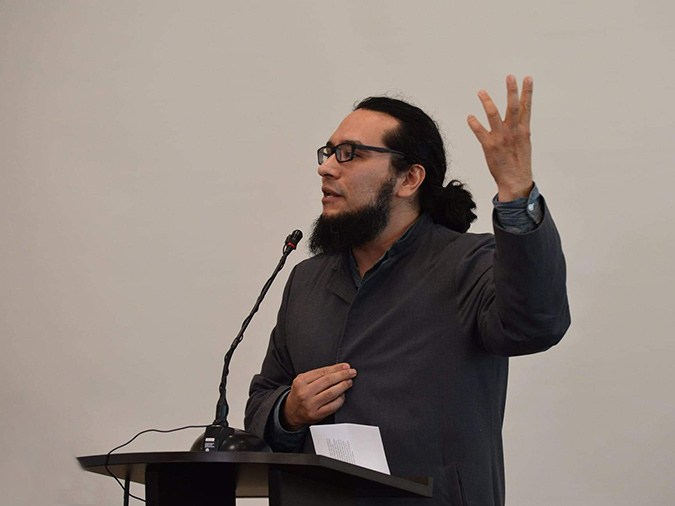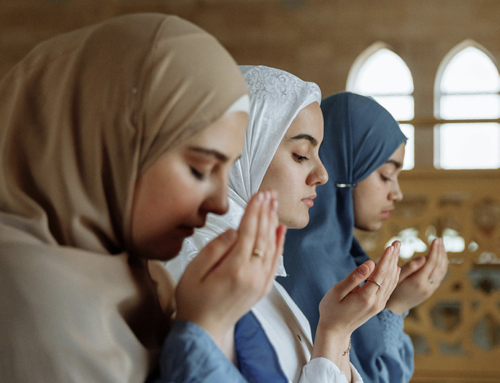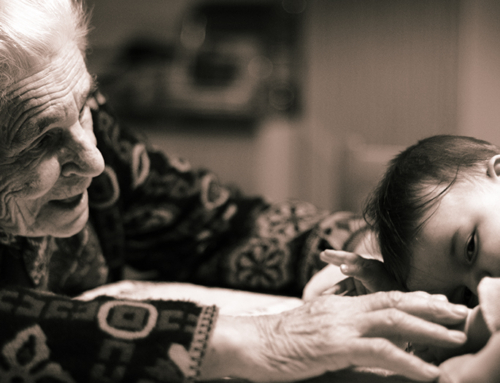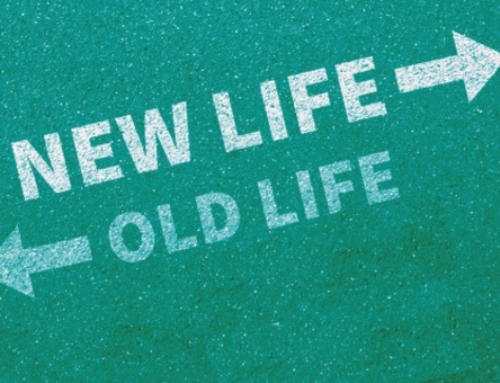By: Habeeba Husain
From Immigrant To Muslim
When Colombian immigrant Giovanni Herran began mentoring a young Muslim brother involved in drug dealings, robbery, and assault, he never thought the relationship would be a means of his own conversion to Islam.
“He told me that my behavior, that my akhlaq (manners) reminded him of a Muslim…so he gifted me an abridged version of Bukhari,” Herran says. “I started reading…and I didn’t put it down. I was looking from hadith to hadith to hadith. Upon reading it, I said, ‘Yeah, this is the Prophet. If this prophet says that he’s the last prophet, then he must be the Last Prophet.’ From there on, I said I’m a Muslim.”
Herran, born in Colombia, immigrated to the United States when he was a young child. He grew up in New York City and was raised in a strict Christian household.
Breaking Free From Restrictions
“I was raised in a fairly strict home with a lot of limitations, akin to what Muslim youth grow up with,” he says. “This isn’t like a secular home where anything goes. The basis of the morality was identified by the church.”
As he entered his teen years, Herran says he lived a sort of double life. He attended church, but also hung out with crews engaged in weed and alcohol. After a certain point, he didn’t want the double life anymore and left the fold of Christianity to free himself of restrictions and everything he was taught by his devout mother.
When he left the religion, Herran adopted a more nihilist view of the world; he didn’t find life to be meaningful, and there was no real truth.
A Soul’s Quest For Connection
“Obviously this was devastating to my soul, and I began to feel it,” Herran says about that time. “My mother’s morality, the grounding that my mother had given me, kept on resurfacing—this idea that what’s missing is a connection to the Lord of the universe, to the Lord of the world, to the Lord of my soul.”
But having been raised in a particularly exclusive Christian sect with doctrinal ideas Herran could not agree with, he knew his previous faith was not the path for him. The then 21-year-old began to explore other ways of life like Buddhism, Taoism, and Perennialism.
It was at this same time that his Muslim mentee gifted him the abridged version of Bukhari, a collection of authentic narrations from the Prophet Muhammad (may the blessings and peace of God be upon him).
Embracing Islam
When Herran’s mother learned about his conversion to Islam, she was heartbroken and thought her son had deviated from the path to paradise.
“But she saw that my akhlaq was slowly changing,” Herran says. “It’s difficult to believe that someone has lost favor with their Lord when they’re attempting to concentrate on their Lord. They’re attempting to develop a relationship.”
He says Allah’s names were on his tongue and manifested in his life, and his mother took note of that. Thus, she became tremendously welcoming to Herran and later on, his Muslim wife as well.
Embracing Dual Identity
In terms of his identity, Herran never felt his ethnic heritage was at odds with his religion.
“To me, being Hispanic was just natural…Spanish is my first language. When I was a child, I was still dreaming in Spanish. I spoke to myself in Spanish—this is just what I am,” Herran explains. “There’s no need to try to hold onto anything if that was already there.”
Still, the current history teacher recognizes not all Hispanic Muslims feel the same way, especially those who are second generation and navigating the melting pot that is America, or as he calls it, “the grave of languages and cultures.”
Giovanni Herran’s Mission
Herran’s main wish for American youth though is access to substantial education about Islam.
“I wish that they were able to receive the type of education which would demonstrate to them that not only is Islam an intelligent and viable alternative, but rather it’s really the alternative—the alternative to a tremendously dangerous world that we’re living in.”
An educator himself, Herran explains today’s dangers as multi-fold, spanning the political, moral, and economical realms. He says Islam is able to tackle these dangers and is quite intelligent in its approach as opposed to what many may think.
“I wish that they would be able to understand the absolute depth, the beauty which is Islam, which is beyond being a historical religion,” he says. “More than a religion, it is the beckoning and the calling of all reality. I wish that was more transparent, both to Muslim youth and non-Muslims.”
For nearly two decades, Herran has tried to relay that beauty and depth of Islam through teaching and youth mentoring so maybe they too can embrace the religion in the way he was able to do.
Got Questions?
We have Answers. Get in touch now.








